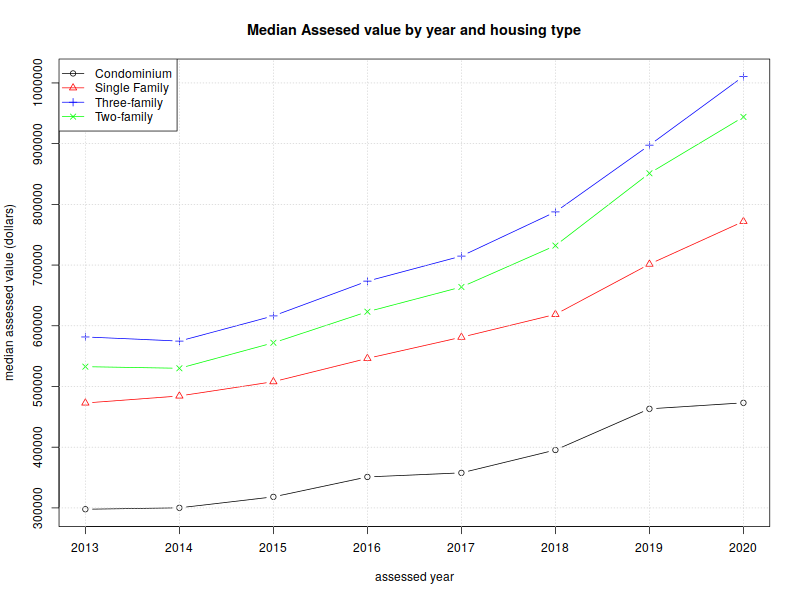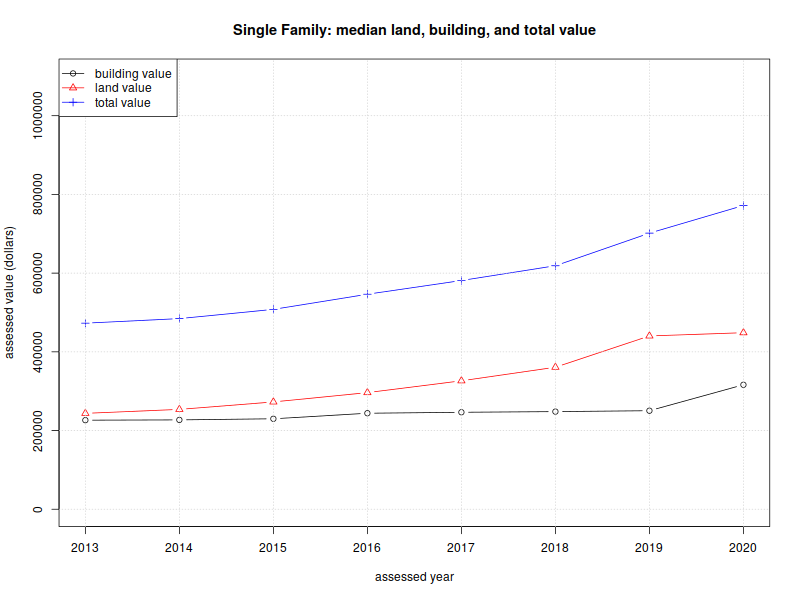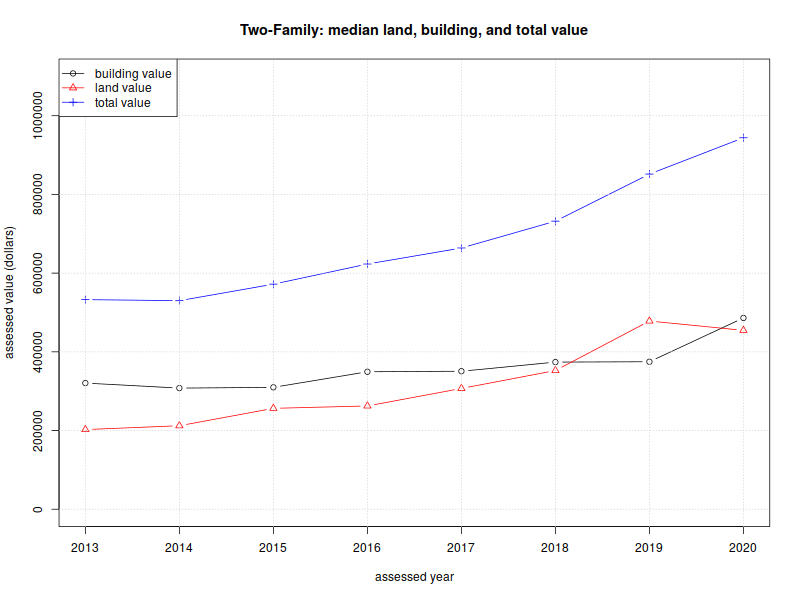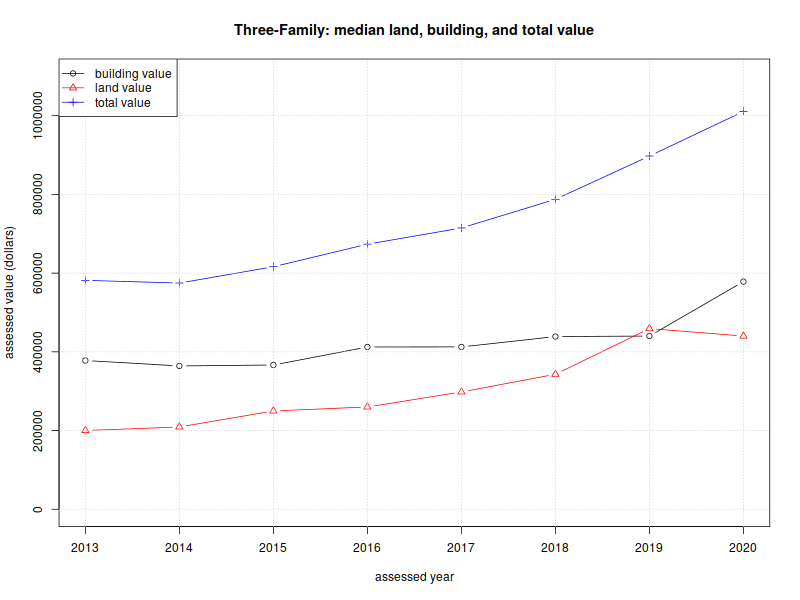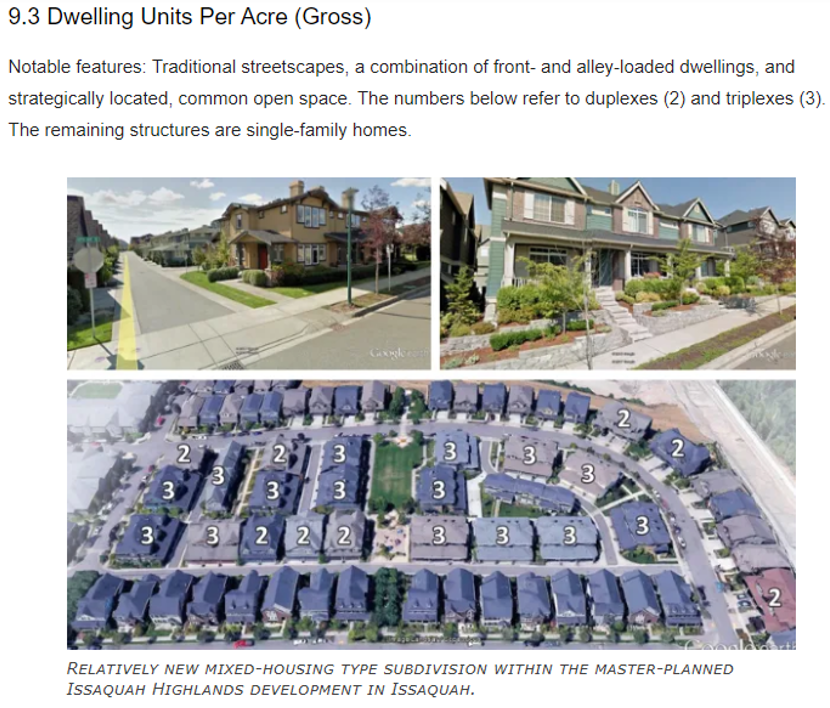(Comments presented to the Arlington Redevelopment Board and Select Board during a public hearing on Jan 13, 2020)
Steve Revilak, 111 Sunnyside Ave. In the interest of disclosure, I live in market rate housing that was built by a developer. Among Arlington residents, I’m not unusual in that regard.
At the end of December, a friend sent me an article that appeared on Redfin’s blog, which ranked the most competitive real estate markets in 2019. Out of 20 listings, three were neighborhoods in Arlington: East Arlington at #3, the Brattle Street Area at #5, and Arlington Center at #12. This is only one data point, but Redfin is a national realtor and works in markets all across the country. Arlington is a desirable place to live.
Housing costs have steadily increased over the last 20 years, modulo a brief reset during the economic recession of 2008. For example, the prior owner of my house purchased it for $151,000 is 1999. I purchased it for $359,000 in 2007 (when it was assessed at $287k). Today, it’s assessed at $501k, which is consistent with similar home sales from 2018.
The net effect: each year a new family moves to town, they have to have a more money (or be willing to spend more on housing) than a family who moved in the year before. With that in mind, I’d like to cite a few figures from the 2019 Town Survey:
- Question 37: Indicate the number of years lived in Arlington. 59% of respondents indicated 15 years or less. Nearly 30% indicated five years or less. Despite the prices, people still move here.
- Question 40: What was your annual household income in 2018. The most common response was “more than $200,000”, with over 28% answering that way. Nearly 71% of respondents indicated earning $100,000/year or more. Arlington’s median income is likely higher than HUD’s AMI for the Metro Boston area.
- Question 41: What is the highest level of educated completed by a member of your household. Over 73% indicated having a masters degree or higher.
I don’t mean to knock people who’ve lived here 15 or fewer years, have advanced degrees, or have household earnings of $200,000 or more per year. I check every single one of those boxes myself. But I do want to point out that we are a highly educated and affluent community. Put another way, we have a population that matches the cost of our housing.
Twenty years of gentrification haven’t killed us: we’ve expanded town staff and services, we’re renovating public buildings, and we’re getting a new high school. Those are all good things, made possible because residents have the money to pay for them, and have been willing to do so.
We can absolutely keep the status quo we’ve had, but I want to recognize that the combination of the housing market and Arlington’s policies have created an economic barrier to living here. I see two issues: one is affordability, and the other is an imbalance between supply and demand.
There are a variety of things we could do, and I think we should consider all of them. I don’t see a viable way to relieve housing pressure that doesn’t involve more housing. And that’s what I hope we can do over the coming years: find ways to build more housing.
